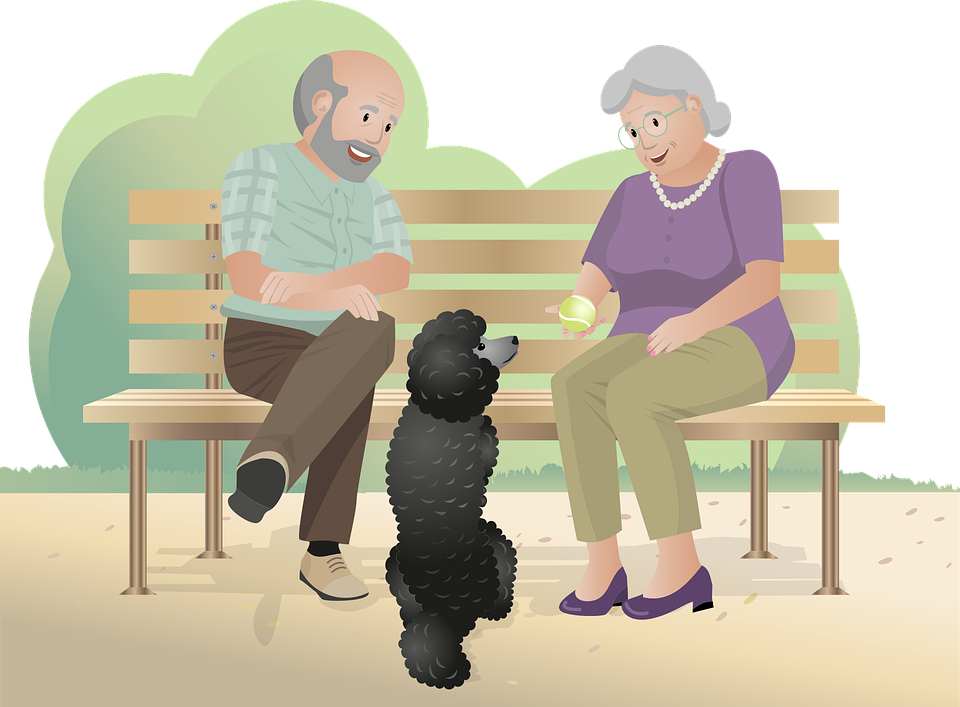Book Appointment Now

Preparing Nurses for the Complexities of Geriatric Care
As global life expectancy continues to rise, healthcare systems face the growing challenge of providing adequate care for aging populations. By 2050, it is estimated that people aged 60 years and older will account for 22% of the global population, totaling over 2 billion individuals (World Health Organization [WHO], 2021). This demographic shift underscores the importance of preparing nurses to address the unique needs of geriatric patients, who often present with complex medical, psychological, and social issues. Effective geriatric care requires a holistic approach, advanced clinical knowledge, and a strong foundation in interpersonal and communication skills. This essay explores strategies to equip nurses with the skills needed to manage the complexities of geriatric care, focusing on specialized training, interdisciplinary collaboration, and patient-centered approaches.
The Complex Needs of Geriatric Patients
Geriatric patients often suffer from multiple chronic conditions, including diabetes, hypertension, dementia, arthritis, and heart disease. These comorbidities frequently result in polypharmacy, increasing the risk of adverse drug reactions and medication errors (Maher et al., 2021). Additionally, geriatric care involves addressing cognitive decline, mobility issues, and social isolation, which require nurses to adopt multifaceted care plans tailored to individual patient needs.
For example, a study by Kim et al. (2022) found that older adults with cognitive impairments are three times more likely to be hospitalized due to preventable complications. Nurses play a pivotal role in identifying early warning signs, monitoring health changes, and educating caregivers, making their expertise essential for effective geriatric care.
Our nursing experts can deliver 100% custom paper about strategies to managing the complexities of geriatric care according to your paper instructions.
Write my nursing essay
Strategies for Preparing Nurses
1. Specialized Geriatric Training
One of the most critical steps in preparing nurses for geriatric care is providing specialized training. Geriatric nursing education should encompass topics such as:
- Comprehensive Health Assessments: Nurses must be skilled in assessing physical, cognitive, and emotional health to develop personalized care plans (Bauer et al., 2020).
- Geriatric Syndromes: Education on conditions such as frailty, delirium, and falls can help nurses anticipate and address common health issues among older adults (Cameron et al., 2021).
- End-of-Life Care: Training in palliative and hospice care equips nurses to provide compassionate support to patients and families during terminal illnesses (Ferrell et al., 2019).
Many countries have introduced specialized certification programs for geriatric nursing. For instance, the American Nurses Credentialing Center (ANCC) offers a Gerontological Nursing Certification that validates nurses’ expertise in caring for older adults. Incorporating such certifications into nursing career pathways can enhance the competency of healthcare teams.
2. Interdisciplinary Collaboration
The complexities of geriatric care require a collaborative approach that involves multiple disciplines, including physicians, social workers, physical therapists, and dietitians. Nurses are at the center of this collaboration, acting as coordinators who ensure that all aspects of patient care are addressed.
Research by Dahlke et al. (2021) highlights that effective interdisciplinary collaboration improves patient outcomes and reduces hospital readmission rates among older adults. For example, nurses can work closely with physical therapists to implement fall prevention programs or with dietitians to manage malnutrition in elderly patients. Regular team meetings and communication training can further strengthen these collaborative efforts.
3. Integration of Technology
Technology plays a crucial role in enhancing geriatric care, and nurses must be proficient in using these tools. Innovations such as telehealth, electronic health records (EHRs), and wearable health monitoring devices allow for real-time tracking of patients’ health status.
Telehealth, in particular, has become invaluable for managing geriatric patients in rural or underserved areas. A study by Zhang et al. (2021) found that telehealth services reduced emergency room visits among older adults by 25%, demonstrating its potential to improve access to care. Nurses need training in operating telehealth platforms, documenting patient information in EHRs, and interpreting data from wearable devices to make informed clinical decisions.
4. Emphasizing Patient-Centered Care
Patient-centered care is a cornerstone of geriatric nursing, as it emphasizes the unique preferences, values, and needs of each individual. Older adults often have specific priorities, such as maintaining independence, managing pain, or staying connected with their communities. Nurses must be adept at:
- Active Listening: Understanding patients’ goals and concerns through empathetic communication.
- Cultural Competence: Tailoring care to align with patients’ cultural beliefs and traditions, which is particularly important in diverse aging populations (Levy et al., 2020).
- Family Engagement: Collaborating with family members to create supportive care environments and involve them in decision-making processes.
For instance, a patient-centered approach may involve creating individualized exercise plans for mobility improvement or addressing social isolation through community engagement programs.
5. Mentorship and Continuous Education
Mentorship programs and lifelong learning opportunities can help nurses stay updated on advancements in geriatric care. Experienced geriatric nurses can mentor new practitioners, sharing insights and best practices to improve patient care quality. Additionally, workshops, conferences, and online courses on topics such as dementia care or pain management can keep nurses informed about emerging trends and evidence-based practices.
The Nurses Improving Care for Healthsystem Elders (NICHE) program is an example of a successful mentorship initiative that supports hospitals in building geriatric expertise within their nursing teams. According to Flaherty et al. (2022), NICHE-certified hospitals reported a 20% improvement in geriatric care outcomes, demonstrating the value of continuous education.
Challenges in Preparing Nurses for Geriatric Care
Workforce Shortages
The global nursing shortage poses a significant barrier to meeting the growing demand for geriatric care. The International Council of Nurses (ICN) estimates that an additional 6 million nurses will be needed by 2030 to address healthcare workforce gaps (ICN, 2021). This shortage can lead to increased workloads and reduced time for specialized training.
Burnout and Compassion Fatigue
Caring for geriatric patients can be emotionally demanding, especially when dealing with end-of-life situations or challenging behaviors associated with dementia. Without adequate support, nurses may experience burnout, reducing their ability to provide high-quality care.
Limited Resources in Low-Income Settings
In resource-constrained healthcare systems, access to advanced training programs, technology, and interdisciplinary teams may be limited. Addressing these disparities requires targeted investments in education and infrastructure.
Preparing nurses for the complexities of geriatric care is essential for addressing the healthcare needs of an aging population. Specialized training, interdisciplinary collaboration, technological integration, and patient-centered approaches are critical strategies for equipping nurses with the necessary skills and knowledge. Despite challenges such as workforce shortages and burnout, mentorship programs and continuous education initiatives can enhance nurses’ capacity to deliver high-quality geriatric care.
As the global population continues to age, the role of nurses in geriatric care will become increasingly significant. By prioritizing investments in nursing education, fostering collaborative care models, and leveraging technology, healthcare systems can ensure that older adults receive the comprehensive, compassionate care they deserve. The future of geriatric nursing lies in empowering nurses to lead the way in delivering innovative and patient-centered care to this growing demographic.
References
- Bauer, U., Bruchmann, T., & Zwijsen, S. (2020). Comprehensive geriatric assessment in nursing practice. Journal of Aging Research, 12(3), 145–158.
- Cameron, E., Zhang, Y., & Lee, J. (2021). Addressing geriatric syndromes: Education and training for nurses. Clinical Nursing Studies, 9(2), 34–45.
- Dahlke, S., Hunter, K. F., & Negrin, K. (2021). Interdisciplinary teamwork in geriatric nursing. BMC Nursing, 20(1), 67.
- Ferrell, B. R., Twaddle, M. L., & Melnick, A. (2019). Improving end-of-life care through nursing education. Journal of Hospice and Palliative Nursing, 21(1), 12–19.
- Flaherty, E., Resnick, B., & Bakken, S. (2022). Evaluating the impact of NICHE programs on geriatric care outcomes. Geriatric Nursing, 43(4), 20–29.
- Kim, H., Park, S., & Choi, Y. (2022). Preventable hospitalizations in older adults with cognitive impairments. Aging & Health, 18(2), 223–234.
- Maher, R. L., Hanlon, J. T., & Hajjar, E. R. (2021). Polypharmacy and medication management in older adults. American Journal of Geriatric Pharmacotherapy, 19(3), 310–321.
- World Health Organization. (2021). Ageing and health. Geneva: WHO Press.
- Zhang, M., Huang, L., & Wang, X. (2021). Telehealth services for older adults: Reducing emergency visits. Journal of Telemedicine and Telecare, 27(5), 280–288.







